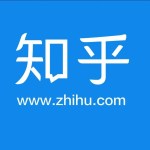How-to & Go-to Guides of All Things Around China.
For international buyers looking to source products directly from Chinese manufacturers, 1688.com (Alibaba’s B2B platform) is a goldmine. However, navigating the platform’s 10 million+ suppliers to find genuine factory-direct partners requires strategic filtering and verification. This guide, tailored for global buyers, reveals proven tactics to identify authentic manufacturers and avoid middlemen on 1688.
1. Leverage 1688’s Advanced Search Filters
Start by refining your search to prioritize factory-owned businesses:
- Keyword Optimization: Include terms like “manufacturer,” “factory direct,” or “OEM/ODM” in your search. For example, “custom apparel manufacturer factory direct” narrows results to production-focused suppliers .
- Region-Specific Searches: Target China’s industrial hubs. For electronics, search “Shenzhen electronics factory”; for textiles, try “Ningbo garment factory” .
- Filter by Supplier Type: Use 1688’s “Super Factory” or “Power Supplier” badges. These suppliers undergo depth verification (实地验厂), including on-site audits of production lines and equipment .
2. Verify Supplier Credentials
Authentic factories display clear certifications and operational transparency:
- Membership Levels:
- TrustPass (诚信通): Indicates a verified business with a minimum 1-year membership. Look for suppliers with 5+ years of TrustPass for stability .
- Power Supplier (牛头标志): Represents large-scale manufacturers with proven track records, often backed by 1688’s official endorsement .
- Super Factory: The highest tier, signifying factories that passed third-party audits (e.g., SGS, ITS) for production capacity and quality management .
- Business Scope: Check the supplier’s 营业执照 (business license) via 1688’s “Company Profile” section. Genuine factories list “production” or “processing” in their 经营范围 .
- Product Consistency: Factories specializing in a niche (e.g., “LED lighting”) will have uniform product lines, unlike traders offering diverse, unrelated items .
3. Analyze Supplier Performance Metrics
Dig into data to gauge reliability:
- Sales History: Filter suppliers with high repeat purchase rates (回头率). A 30%+ repeat rate signals satisfied buyers .
- Response Time: Prioritize suppliers with ≤24-hour response times to inquiries. This reflects professionalism and commitment .
- Order Volume: Look for suppliers with large transaction volumes (e.g., 1,000+ orders/month). High sales indicate market trust .
4. Uncover Hidden Factories via Brand Collaborations
Many 1688 suppliers produce for global brands. Use these clues to identify them:
- OEM/ODM Listings: Search keywords like “Nike OEM factory” or “Apple supplier” to find manufacturers with proven quality standards .
- Product Similarities: Compare 1688 products to branded items. For example, a supplier offering a **$38 316 stainless steel vacuum flask** identical to a $198 MUJI model likely manufactures for the brand .
- Certifications: Factories exporting to Western markets often hold ISO 9001, CE, or FCC certifications. Request copies via 1688’s messaging system .
5. Conduct On-Site or Virtual Factory Inspections
For high-value purchases, verify operations directly:
- VR Factory Tours: Some 1688 suppliers provide 360° factory videos (e.g., via 店雷达工具), showing production lines, machinery, and employee workflows .
- Third-Party Audits: Hire platforms like TÜV Rheinland or SGS to conduct paid factory audits (≈$500–$1,000). Reports detail capacity, compliance, and ethical practices .
- Sample Orders: Order small batches (e.g., 10–20 units) to test quality. A factory-direct supplier will offer lower MOQs (Minimum Order Quantities) than traders .
6. Avoid Middlemen Traps
Steer clear of resellers by:
- Checking Company Names: Factories often include “Factory” or “Manufacturing” in their names (e.g., “Dongguan XYZ Electronics Factory”). Avoid names like “ABC Trading Co.” .
- Reviewing Product Listings: Factories showcase customization options (e.g., material choices, logo printing), while traders focus on ready-made items .
- Negotiating Terms: Ask suppliers to share factory addresses or invite you to visit. Middlemen will hesitate to provide this info .
7. Negotiate Like a Pro
Maximize savings with strategic tactics:
- Bulk Discounts: Request quotes for 100+ units to trigger lower prices. Factories profit from scale, while traders may resist bulk offers .
- Inquire About Overruns: Ask if the supplier has overproduction stock (尾单) from brand orders. These are often sold at 30–50% off .
- Leverage Payment Terms: Use Alibaba Escrow for secure transactions. Factories may offer T/T 30% deposit terms, while traders prefer upfront payments .
8. Harness 1688’s Ecosystem for Success
- Industry-Specific Hubs: Use 1688’s 产业带专区 (Industry Zones) to connect with regional clusters. For example, Qingdao for furniture, Yiwu for 小商品 (small goods) .
- New Tools: Utilize 店雷达 (Dianleida) to analyze supplier data, including sales trends, customer demographics, and hidden factory relationships .
- Local Support: Partner with 1688 sourcing agents (e.g., Alibaba’s Gold Suppliers) for Mandarin-speaking assistance, factory visits, and quality control .
9. Mitigate Risks
- Legal Compliance: Ensure suppliers hold export licenses and comply with your country’s regulations (e.g., FDA for food products) .
- IP Protection: Request non-disclosure agreements (NDAs) for custom designs to prevent plagiarism .
- Dispute Resolution: Familiarize yourself with 1688’s Buyer Protection policies, including refunds for non-conforming goods .
Conclusion
Successfully sourcing from 1688 requires vigilance, data analysis, and cultural awareness. By leveraging advanced filters, verifying credentials, and engaging suppliers strategically, you can tap into China’s vast manufacturing network at factory-direct prices. Remember: patience and thoroughness are key—invest time upfront to build long-term partnerships that drive your business forward.
For more insights on China’s business landscape and travel tips, visit gotochina.guide! 🌐🛠️








